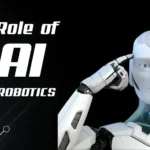The terms Data Science vs Artificial Intelligence refer to general approaches and strategies for interpreting and utilizing digital data. Contemporary organizations gather data on all facets of human existence from various physical and virtual systems. We have vast amounts of text, audio, video, and image data. To extract meaning from data, data science integrates technology, statistical tools, and procedures.
Taking this a step further, artificial intelligence uses the data to address cognitive issues like learning, pattern recognition, and human-like expressions that are typically connected to human intelligence. It is a group of intricate algorithms that “learn” as they go and improve at problem-solving over time.
What is Data Science?
Data science is the process of combining structured and unstructured data to extract meaning and insights using a variety of techniques, algorithms, and methods. This multidisciplinary field employs methods from statistical analysis, machine learning, data mining, and visualization. This method can be used to analyze large datasets to identify patterns, trends, and relationships. Data science aims to transform unprocessed data into meaningful insights that can be used to drive innovation, improve processes across industries, and guide decision-making.
To solve complex analytical problems, data science combines computer science, statistics, mathematics, and domain knowledge. Data scientists use programming languages such as Python, R, and SQL to work with data, build predictive models, and conduct statistical analyses. They also use methods and tools such as feature engineering, data cleaning, and model validation.
Data science is used in many industries, including marketing, finance, retail, healthcare, and manufacturing. Data scientists in finance analyze consumer behavior, market trends, and risk factors to aid in algorithmic trading and investment decisions. Data scientists use patient data and medical records to perform predictive analytics, disease diagnosis, and personalized treatment plans.
What is Artificial Intelligence?
The development of machines that can mimic human intelligence and perform tasks that typically require human cognitive processes is known as artificial intelligence. These systems are designed to mimic human-like abilities like learning, problem-solving, decision-making, and natural language comprehension. Artificial Intelligence (AI) seeks to create objects that can sense their environment, understand context, and change their behavior on their own to achieve specific objectives.
ML, NLP, computer vision, robotics, and expert systems are just a few of the technologies that are included in AI. With the use of these technologies, artificial intelligence (AI) systems can process and analyze vast amounts of data, identify patterns, anticipate the future, and communicate with people and their environment in a human-like way.
Under the more general heading of artificial intelligence, machine learning focuses on developing models and algorithms that enable machines to learn from data and gradually improve their capacities without the need for special programming. In machine learning, supervised, unsupervised, and reinforcement learning are frequently employed techniques for training models and granting them the ability to carry out particular functions, like recommendation systems, image identification, and language translation.
Differences Between Data Science vs Artificial Intelligence
- Tools: Tools like Python, R, SQL, and platforms like Jupyter and Tableau are frequently used by data scientists. Researchers and developers working in AI may choose to use PyTorch, TensorFlow, or OpenAI’s platforms.
- Purpose: The primary goal of data science is to draw conclusions and knowledge from massive volumes of data. Contrarily, artificial intelligence (AI) aims to build systems that can carry out tasks without the need for explicit instructions.
- Scope: Data science is the study of complex data analysis and interpretation using a variety of methods from statistics, data analysis, and machine learning. Natural language processing, robotics, and other fields are included in the larger field of artificial intelligence.
- Implementation: Artificial Intelligence (AI) aims to automate tasks and create self-governing systems, whereas data science typically ends with insights and decisions.
Similarities Between Data Science vs Artificial Intelligence
- Data Dependence: Data play a major role in both fields. Data is the foundation for both AI model training and insights in data science.
- Interdisciplinary: Both disciplines incorporate elements from other fields, such as computer science, mathematics, and domain-specific knowledge.
- Innovation and Growth: These are two rapidly expanding fields that are at the forefront of technological innovation.
- Problem Solving: Both domains strive to leverage technology to resolve intricate issues, be it by employing AI to automate processes or making decisions based on data.
- Machine Learning: Machine learning is used in both domains. AI researchers use it to teach machines how to learn from data, while data scientists use it to analyze data and make predictions.
Salaries for Data Scientists and Artificial Intelligence Engineers
A data scientist typically makes about $116,654 a year in pay. Businesses willing to use big data to improve business decisions understand its power, which is why they are willing to pay such high salaries. In this expanding field, starting salaries are starting to look pretty good. Experienced data scientists make up to $142,131 annually, while entry-level scientists can make up to $93,167.
In a similar vein, an artificial intelligence engineer typically makes well over $100,000 annually. With an average low of $90,000 and a high of $304,500 annually, the average national salary in the United States is $164,769 per year. The pay for AI engineers will keep rising as their career options continue to grow at a rapid pace.
Data Science vs Artificial Intelligence Careers
- Data Scientist: Large datasets are gathered, processed, and analyzed by data scientists to provide decision-makers with useful information. To find patterns and trends in data, they make use of statistical analysis, machine learning algorithms, and data visualization techniques.
- Data Analyst: Data analysts concentrate on analyzing data to give stakeholders insightful analysis and recommendations. Their methods for analyzing data, spotting trends, and effectively communicating their conclusions include statistical analysis and data visualization tools.
- Big Data Engineer: Experts in data engineering concentrate on creating and maintaining large-scale data management systems that can handle enormous volumes of data. They use Hadoop, Spark, and Kafka, among other technologies, to build efficient and scalable data chains. High efficiency and scalability are guaranteed by the way these pipelines are made for data processing, storage, and analysis.
- Machine Learning Engineer: To solve challenging issues and automate decision-making procedures, machine learning engineers create, develop, and implement machine learning models and algorithms. To train models, optimize algorithms, and incorporate them into live systems, they collaborate closely with data scientists.
FAQ’S
Q1. Which is superior, artificial intelligence or data science?
Ans. Data Science vs Artificial Intelligence (AI) may be “better” depending on the circumstances and goals involved. While artificial intelligence (AI) focuses on building machines or systems that can carry out tasks requiring human intelligence, data science analyzes and interprets complex data to make informed decisions. Each has advantages and is crucial in certain fields of study and technology.
Q2. Who gets paid more for data science or AI?
Ans. Pay varies significantly depending on the particular role, industry, level of experience, and region. However, compared to general data science positions, highly specialized AI roles—especially those requiring deep expertise in machine learning—may offer higher salaries on average.
Q3. Is data science or AI more difficult?
Ans. The relative difficulty of data science and AI depends on the skills and backgrounds of the individual. Deep knowledge of algorithms, mathematics, and computer science is frequently necessary for AI. Data science, on the other hand, might be more concerned with statistics, data analysis, and domain knowledge. Every field has unique difficulties and complexities.





